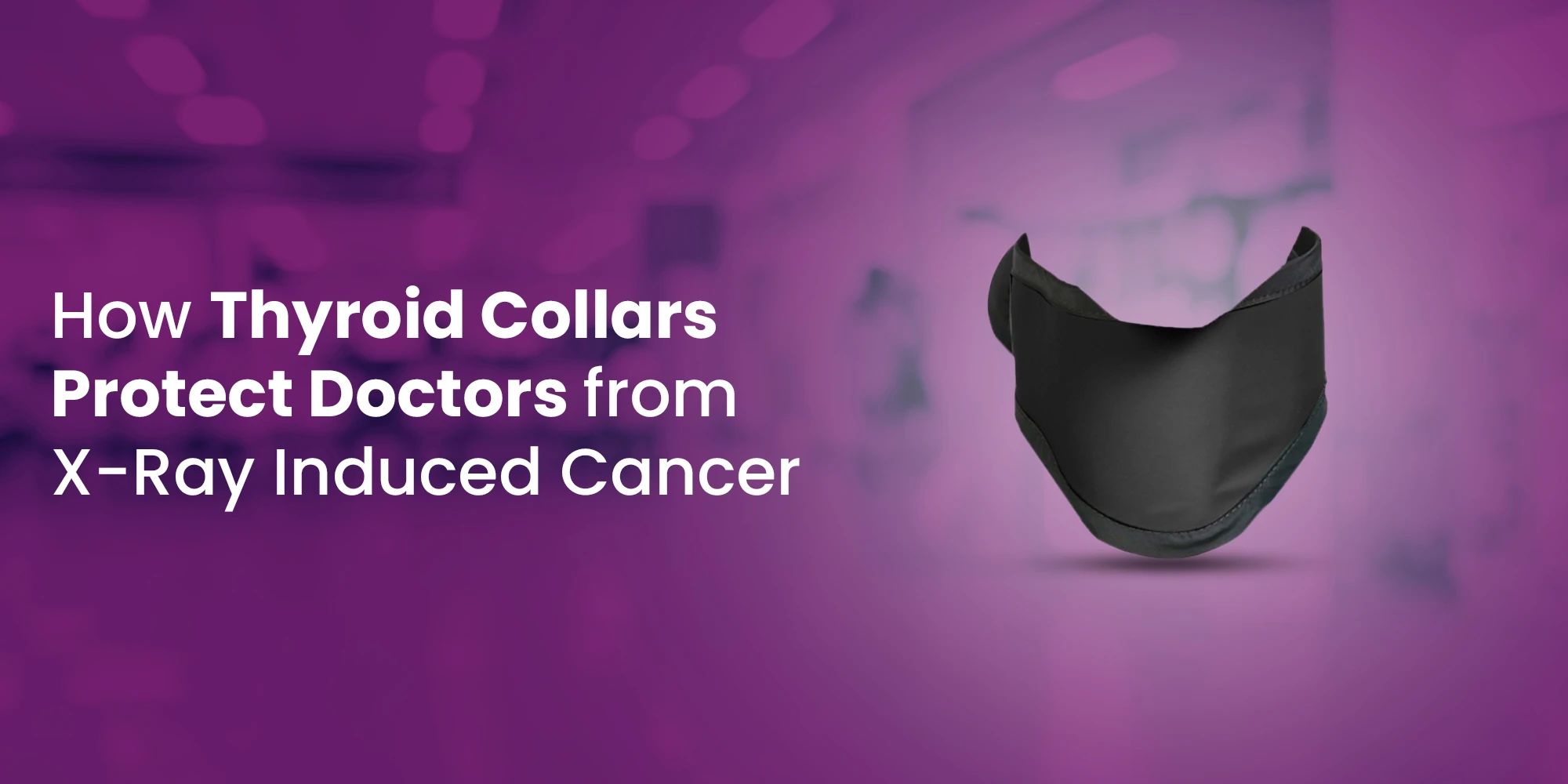The thyroid gland, a butterfly-shaped organ located in the neck, helps in regulating metabolism, growth, and development through the secretion of hormones. Despite its small size, the thyroid’s impact on overall health is significant, making its protection from harmful influences a priority, especially for medical professionals frequently exposed to radiation.
One essential tool for this protection is the Thyroid Collar, that shield the thyroid gland from X-ray radiation. This blogs talks about the importance of thyroid health, the risks posed by X-ray exposure, and the benefits of wearing a Thyroid Collar.
Importance of Thyroid Health
The thyroid gland produces hormones such as thyroxine (T4) and triiodothyronine (T3), which are critical for maintaining the body’s metabolic rate, heart function, digestive health, muscle control, brain development, and bone maintenance. Disruption in thyroid function can lead to various health issues, including hypothyroidism (underactive thyroid), hyperthyroidism (overactive thyroid), and thyroid cancer. Given its vital functions, protecting the thyroid from potential harm is essential, particularly for healthcare workers who are regularly exposed to diagnostic imaging techniques involving radiation.
How X-Rays Cause Thyroid Cancer?
X-rays are a form of electromagnetic radiation used extensively in medical imaging to diagnose and treat various conditions. While X-rays are invaluable in modern medicine, their ionizing nature means they have enough energy to remove tightly bound electrons from atoms, creating ions. This ionization process can damage or alter DNA within cells, potentially leading to mutations and cancer. The thyroid gland is particularly susceptible to radiation-induced cancer, especially in younger individuals and those exposed repeatedly over time.
Healthcare professionals, including radiologists, surgeons, and dental practitioners, who frequently use X-ray machines, are at an elevated risk of exposure. Even low doses of radiation, when accumulated over years of practice, can significantly increase the risk of developing thyroid cancer. Thus, implementing protective measures is crucial to mitigate these risks.
The Necessity of Wearing a Thyroid Collar
A Thyroid Collar, also known as a thyroid shield, is a protective device worn around the neck during exposure to X-ray radiation. It is typically made of lead or lead-equivalent materials, which are highly effective at absorbing X-rays and preventing them from reaching the sensitive tissues of the thyroid gland.
The importance of wearing a Thyroid Collar are mentioned below:
- Effective Radiation Shielding: The primary function of a Thyroid Collar is to block X-ray radiation. Lead's high atomic number makes it exceptionally effective at attenuating ionizing radiation, thereby protecting the thyroid from potential damage.
- Reducing Cancer Risk: By preventing X-ray exposure to the thyroid gland, the risk of developing radiation-induced thyroid cancer is significantly reduced. This is particularly important for healthcare workers who are regularly exposed to X-rays in their daily practice.
- Compliance with Safety Protocols: Many medical institutions and regulatory bodies mandate the use of protective equipment, including thyroid collars, to ensure the safety of healthcare workers. Adhering to these protocols not only enhances personal safety but also raises a culture of health and safety within the workplace.
Peace of Mind: Knowing that protective measures are in place allows healthcare professionals to focus on providing the best possible care to their patients without the added concern of potential long-term health risks to themselves.
Additional Benefits of Thyroid Collars
- Ease of Use: Thyroid Collars are designed to be easily worn and removed, making them convenient for busy medical environments.
- Comfort: Modern designs ensure that these collars are comfortable, lightweight, and do not impede the wearer’s movements or ability to perform medical procedures.
- Cost-Effective: Investing in Thyroid Collars is a cost-effective measure compared to the potential costs associated with treating radiation-induced thyroid cancer.
Embracing these protective measures ensures that those dedicated to saving lives can do so without compromising their own health.







